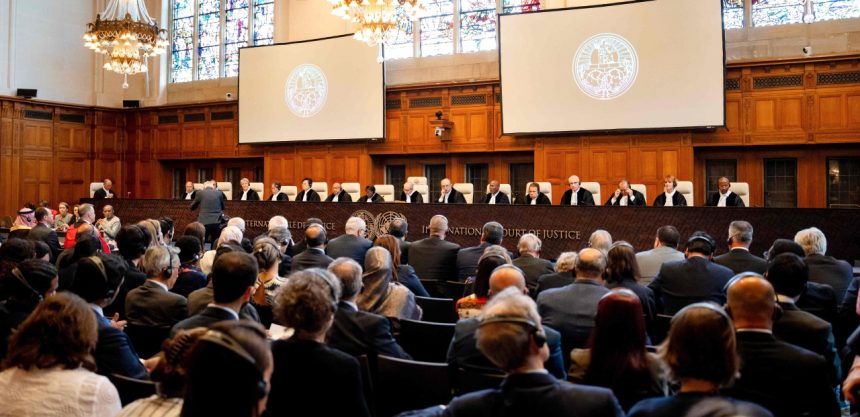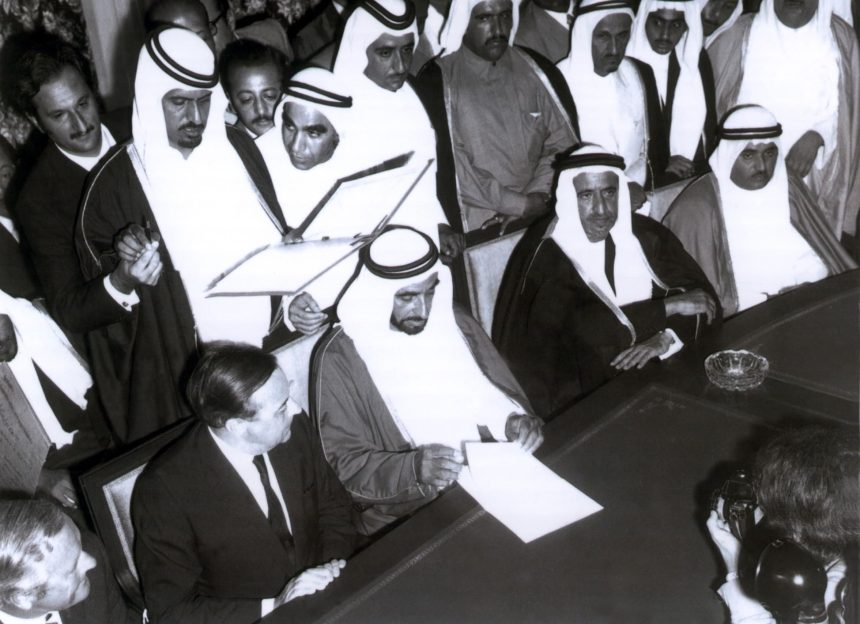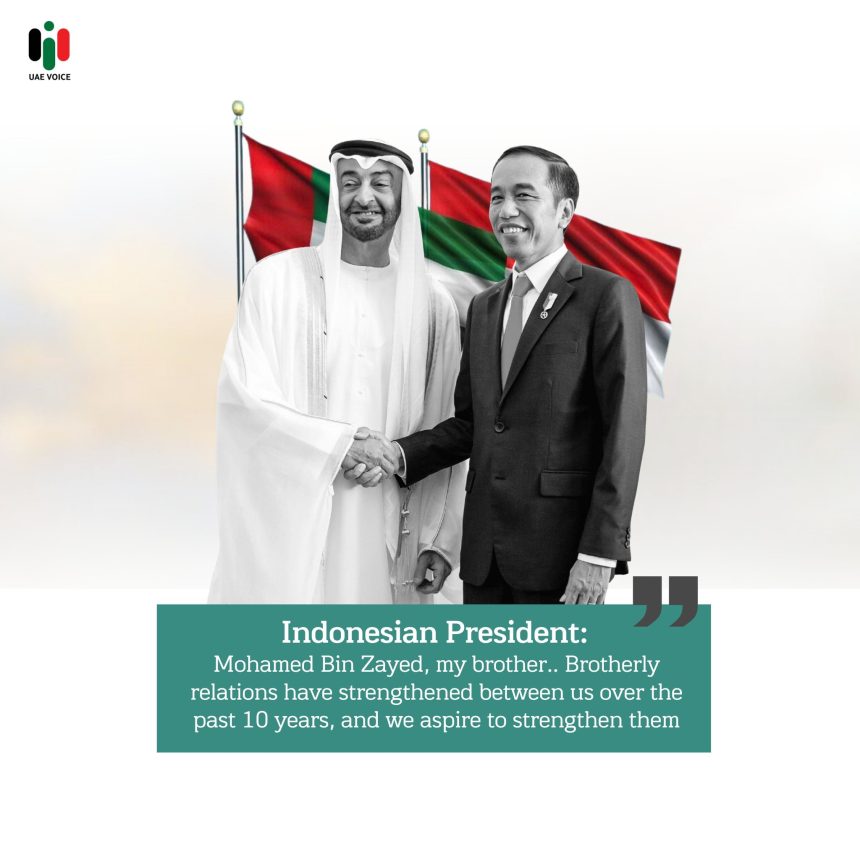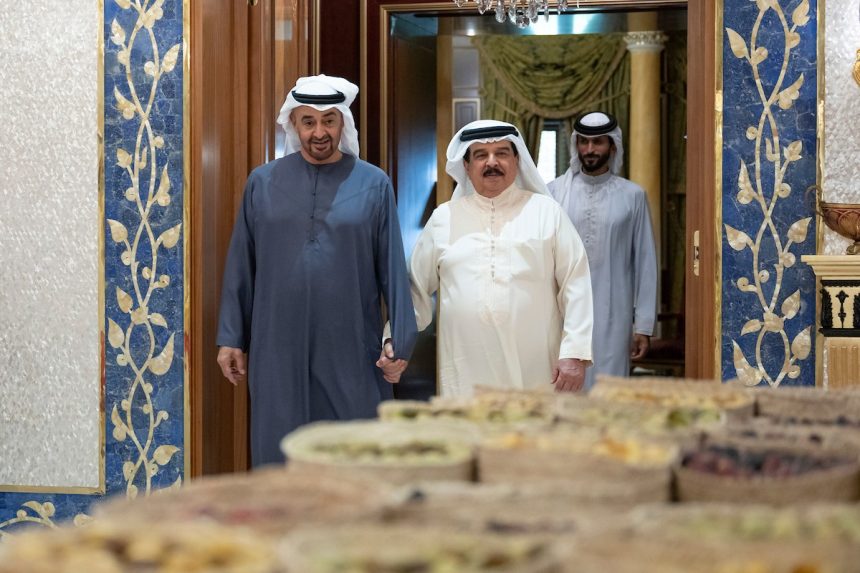The Head of State visits the King of Bahrain at his residence in Abu Dhabi
His Highness Sheikh Mohammed bin Zayed Al Nahyan, the President of the UAE, visited his brother, His Majesty King Hamad bin Isa Al Khalifa, the ruler of the Kingdom of Bahrain, at his residence in Abu Dhabi.
During the meeting, both leaders engaged in friendly conversations that reflected the strong fraternal bonds between the UAE and Bahrain.
Their commitment to reinforcing cooperation and coordination across all levels was evident.
It is serving the priorities of sustainable development and prosperity in both nations.
They also expressed mutual eagerness to continue strengthening these ties, which benefit their respective peoples and fulfill their aspirations for progress and well-being.

The meeting was attended by:
- His Highness Sheikh Hamdan bin Mohammed bin Zayed Al Nahyan, Deputy Chief of the Presidential Court for Special Affairs.
- His Excellency Sheikh Mohammed bin Hamad bin Tahnoon Al Nahyan, Advisor for Special Affairs at the Presidential Court.
Several other dignitaries and officials were also present, including:
- His Excellency Sheikh Nasser bin Hamad Al Khalifa, National Security Advisor, Secretary-General of the Supreme Defense Council, Commander of the Bahraini Royal Guard.
- His Highness Sheikh Khalid bin Hamad Al Khalifa, First Deputy Chairman of the Supreme Council for Youth and Sports, President of the General Sports Authority and Chairman of the Bahrain Olympic Committee.

The UAE and Bahrain Historical Relations
The historical ties between the United Arab Emirates (UAE) and the Kingdom of Bahrain run deep.
They are characterized by shared cultural, economic, and strategic connections.
Let’s explore some key aspects of their relationship:
Geographical Proximity:
- The UAE and Bahrain are neighboring Gulf countries, situated in close proximity to each other in the Arabian Peninsula.
- Their geographical location has historically facilitated trade, cultural exchange, and diplomatic interactions.
Historical Bonds:
- Before the formation of the UAE as a federation in 1971, individual emirates (including Abu Dhabi and Dubai) maintained strong historical ties with Bahrain.
- These ties date back centuries and were rooted in maritime trade, pearl diving, and cultural exchanges.

Shared Heritage and Culture:
- Both nations share a common Arab and Islamic heritage.
- Traditional customs, language, and social practices have influenced each other over time.
Economic Cooperation:
- Economic collaboration has been a cornerstone of their relationship.
- Trade, investment, and joint ventures have flourished, benefiting both countries.
- The UAE and Bahrain have worked together to enhance economic diversification, infrastructure development, and financial services.
Strategic Alliances:
- The two countries have consistently supported each other on regional and international platforms.
- They share common interests in regional stability, security, and cooperation.
- Joint military exercises and security partnerships have strengthened their ties.
The General Civil Aviation Authority and the Civil Aviation Administration of China signed a memorandum of understanding to increase air traffic between the airports of the UAE and the People’s Republic of China. The two countries celebrate the 40th anniversary of the launch of… pic.twitter.com/cR47U55Xdp
— UAE Voice (@uae_voiceeng) July 22, 2024
Cultural Exchange and People-to-People Connections:
- Cultural events, festivals, and artistic exchanges have fostered understanding and appreciation between their peoples.
- Educational and academic collaborations have also played a role in promoting mutual understanding.
Diplomatic Relations:
- The UAE and Bahrain maintain diplomatic missions in each other’s capitals.
- High-level visits, such as the recent meeting between Sheikh Mohammed bin Zayed Al Nahyan and King Hamad bin Isa Al Khalifa, reinforce their commitment to bilateral ties.
The historical ties between the UAE and Bahrain are multifaceted, spanning trade, culture, diplomacy, and shared interests.
Their relationship continues to evolve, driven by mutual respect and a commitment to regional prosperity and stability.





